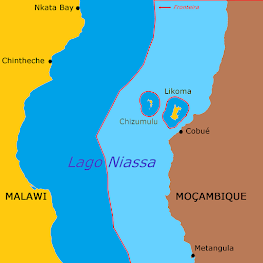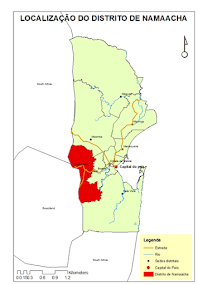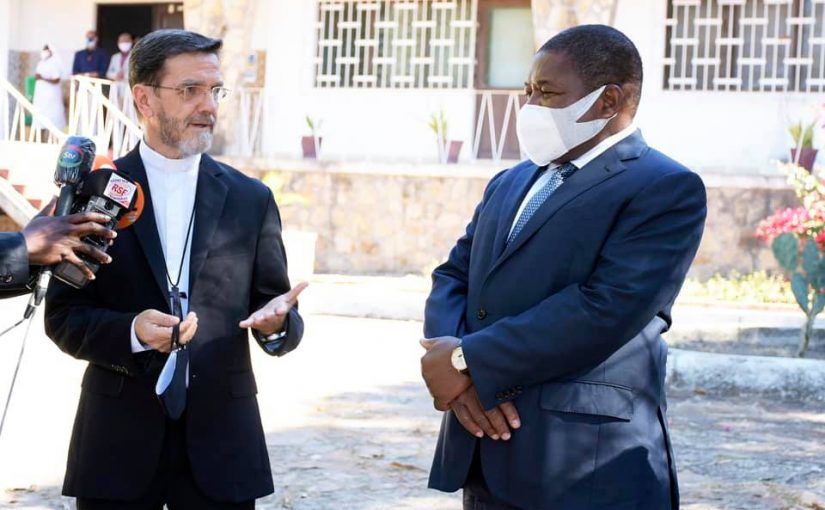On the night of last Saturday, August
15th, the business class and the Indian community, resident in the country,
were again shaken by the kidnapping crime, with the kidnapping, in the
Maquinino neighborhood, in the city of Beira, Sofala's provincial capital, from
the son of the owner “Formosa” - a house selling alcoholic beverages and other
products - Rajiv Nitin. The crime happened days after the province of Maputo
also witnessed the same barbarity, with the kidnapping of businessman Artur
António Magaia, owner of Magaia Resort, based in the municipality of Praia de
Bilene, Gaza province. The crime happened last Tuesday night, in the Belo
Horizonte district, in the district of Boane.
Benjamina Chaves, Director of the
National Criminal Investigation Service (SERNIC), at the level of Maputo
province, told Agência Lusa that everything is being done to rescue the
businessman and hold the kidnappers accountable. However, a SERNIC source
revealed to our report that there is no precise information about Magaia's
whereabouts. However, more than addressing the last two kidnappings that shook
the country, this week aims to continue the article published on the 23rd of
July, in which we brought some details that characterize this type of crime,
already rooted in the our country. In this edition, we bring you some details
about drug and firearms trafficking.
An investigation carried out by our
report, in the province of Cabo Delgado, concluded that the explosion of the
boat, which carried 1,500 kg of heroin, in December 2019, was due to the
betrayal among the national agents involved in the operation. A source from the
"Charter" said one of the agents had alerted the 12 Iranian citizens
to the operation. In fact, the sources also say that some agents participated
in a scheme to divert more than 100 kg of the drug seized by the Mozambican
authorities. It should be noted that, in recent weeks, the Police of the
Republic of Mozambique (PRM) reported the seizure of several firearms in “other
people's hands”, however, as on other occasions, it did not reveal the legal
owners of those weapons and much less how they ended up in the hands of the
alleged criminals.

For
example, in the Chali neighborhood, in the KaTembe Municipal District, in the
city of Maputo, the PRM seized six firearms a few days ago, two shotguns (22mm
caliber), with the numbers 190190 and 101412 and four Dadix pistols Axitr,
Erma, FN and Mark-III, under the numbers 655, 768722, 9018, respectively; a
pistol magazine; a shotgun bag; and 57 pistol ammunition. According to the
corporation, the (war) material was abandoned by hitherto unidentified
individuals, when they became aware of the police patrol. In the province of
Niassa, specifically in the village of Namapire, district of Mandimba, a
firearm of type AK-47, with the number BA1021, was found, containing 24
ammunition in the magazine. It was abandoned by unidentified individuals, in an
agricultural field.
In the districts of Maúa and Marrupa, also in
the province of Niassa, three citizens were arrested, named A. Sadique, A.
Taiare and V. Victor, for having been found in possession of three firearms,
one AK-47 , with nº 3544 and two semi-automatic SKS nºs 24204291 and 1725417. In
the province of Manica, in the district of Machaze, a firearm of the pistol type,
with the Walter mark, with the number 122625, caliber 9mm and two ammunition in
the magazine was seized. At the time, two 18-year-old citizens were arrested.
For
its part, in the Municipality of Matola, Maputo province, the PRM detained a
citizen, named M. Massingue, 23 years old, in possession of a SP2M pistol. At
the Administrative Post of Panjane, Magude district, a CZ550 shotgun, caliber
375mm, with the number G5067 and four ammunition was found. The individuals
were also not found. Some police sources, as well as some criminalists,
guarantee that the number of weapons seized exceeds the number revealed by the
authorities and that some end up being returned to the criminals. In fact, the
lack of political will is pointed out as one of the reasons that influences the
failure to investigate the provenance of the weapons seized in the hands of
criminals. (Omardine Omar)









